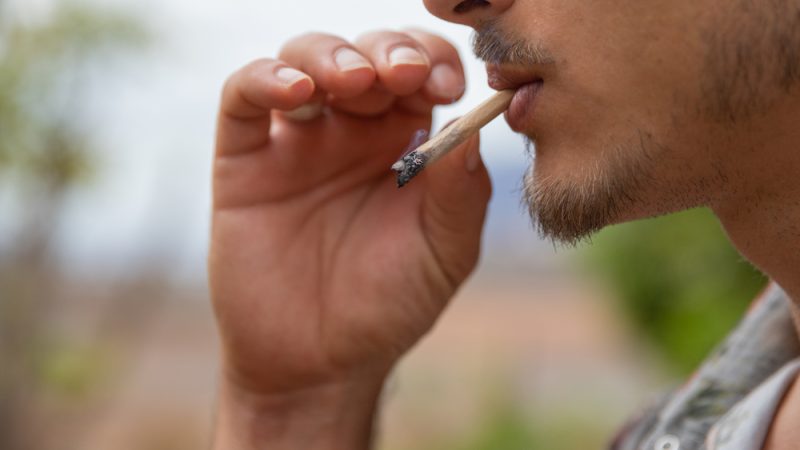- Your cart is empty
- Continue shopping

[ad_1]
France is relying on a policy of prohibition despite a new European report advocating for better communication of cannabis use risks, with the effectiveness of this approach still in question.
The latest report from the European Monitoring Centre for Drugs and Drug Addiction (EMCDDA) reveals that cannabis remains the most widely used illicit drug in the EU. Approximately 8% of individuals aged 25-64, totaling 22.5 million people, used cannabis in 2022. Additionally, the report highlights an increase in the availability of cannabis, with the seizure of resin and herb in the EU reaching a decade-high in 2021.
Effective risk communication strategies are deemed essential in the report to educate consumers about the negative health effects linked to new substances, drug interactions, and products with high active ingredient content.
However, France opts for a punitive approach with strict legislation, imposing fines and even imprisonment on consumers.
According to Clément Rossignol-Puech, mayor of Bègles, Gironde, France, the government allocates a significant portion of its budget to combatting drug trafficking rather than informing consumers about health risks.
France has the second-highest cannabis consumption rate in Europe, with 45% of French individuals aged 15 to 64 reporting cannabis use at least once in their lives, as per a report by the French Observatory of Drugs and Addictive Tendencies (OFDT) from September 2021.
This rate is higher than that of other European countries like Spain or Denmark, where it is below 40%. In the Netherlands, where cannabis is freely available, the rate stands at 30%.
European countries heading towards legalization
Across the EU, a shift in public cannabis policies has been evident for some time. Portugal decriminalized drugs in 2001, resulting in cannabis consumption three times lower than in France, according to Caroline Janvier, Renaissance MP for the Loiret region.
Malta stands as another example, having fully legalized cannabis use for individuals aged 18 and above since 2021.
Germany recently announced intentions to move towards full cannabis legalization by 2024, aiming to enhance child and youth protection, as mentioned by Health Minister Karl Lauterbach.
While there are calls for harmonized European regulations on therapeutic and recreational cannabis, each country in the EU maintains its unique cannabis policy, as underscored by MEP David Cormand (Greens/EFA).
A resolution passed by the European Parliament in 2019 advocating for European rules on cannabis is non-binding and expresses a standpoint rather than imposing regulations.
Cormand emphasized the significance of legal rules to oversee sales points, reduce black-market activities, prevent substance abuse, and address addiction among minors and vulnerable groups.
Cormand highlighted the challenges of treating cannabis dependence and addiction when its use is illegal, with 97,000 individuals seeking care for cannabis-related issues in Europe in 2021.
“Drug addicts are considered criminals before they are sick,” added French MP Janvier.
French stance on policy
In France, there seems to be little movement towards cannabis legalization. Valérie Saintoyant, delegate for the French mission against drugs and addictive behavior, dismissed cannabis legalization in Europe as far from being successful in January.
Despite this, some officials argue against the current punitive approach.
“The current public policy on cannabis in France is deemed ineffective,” noted Janvier, who serves as rapporteur for the information mission on cannabis usage regulations and impact.
Janvier advocates for a controlled legalization approach where the state oversees product manufacturing, processing, and THC content to better manage consumption and decrease associated risks.
Rossignol-Puech also supports the idea of experimenting with cannabis legalization on a smaller scale in his town to provide better consumer awareness and management.
He emphasized the importance of educating young individuals about cannabis risks, especially given the increased vulnerability of the under-25 age group.
[Edited by Giedrė Peseckytė/Nathalie Weatherald]
Read more with Euractiv
[ad_2]
Source link


